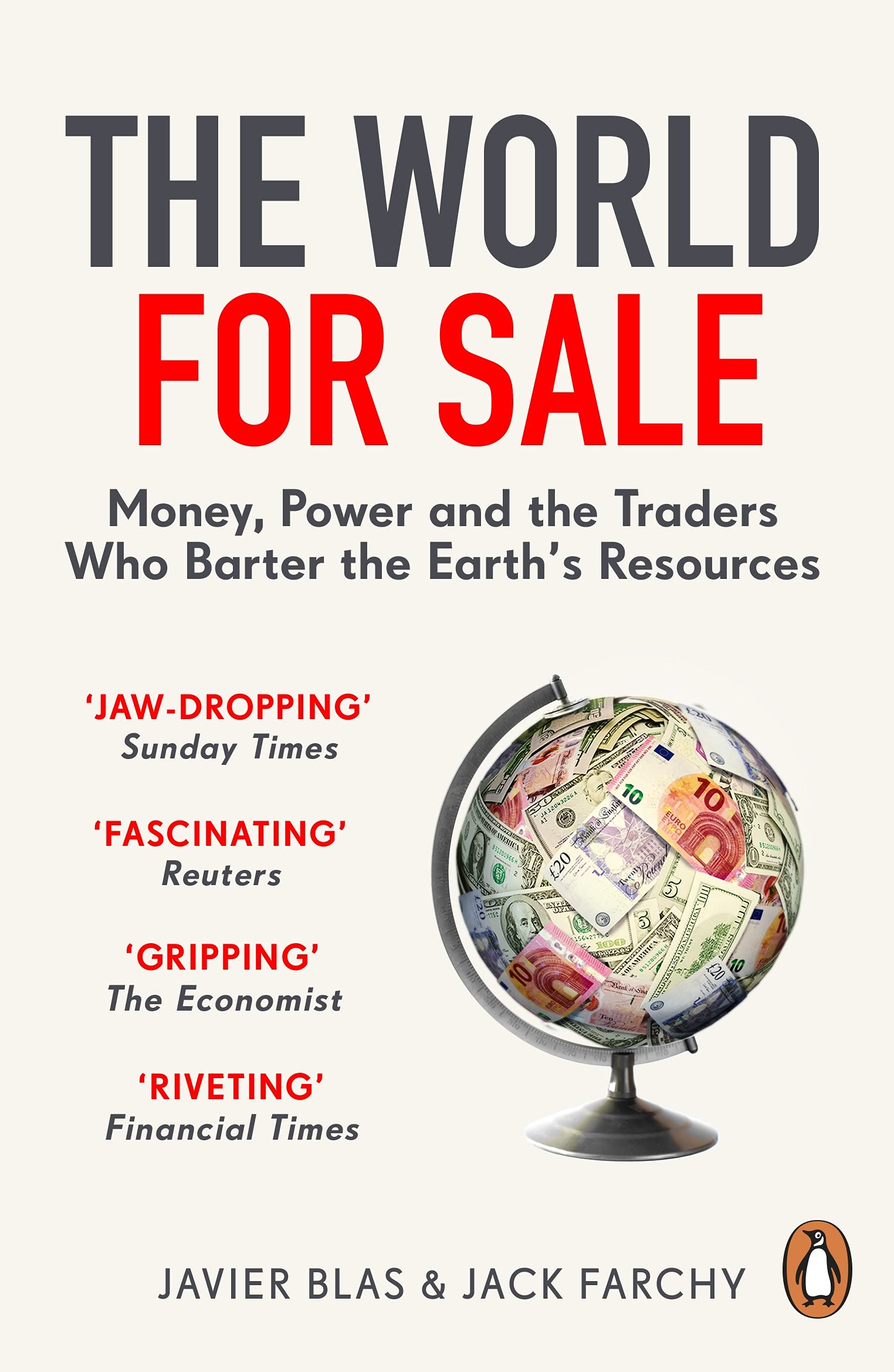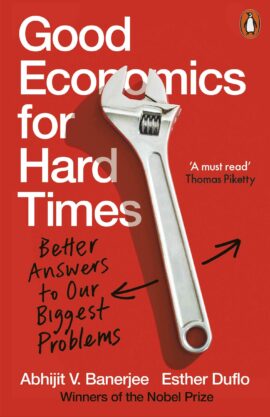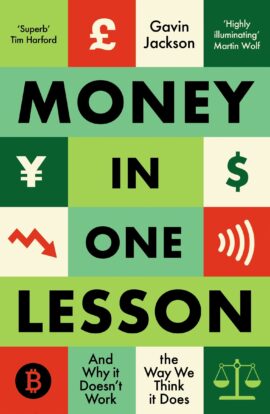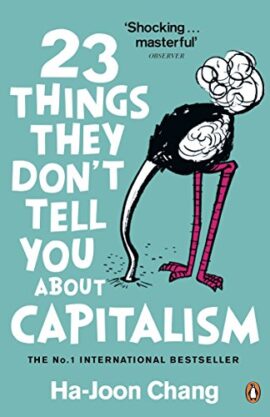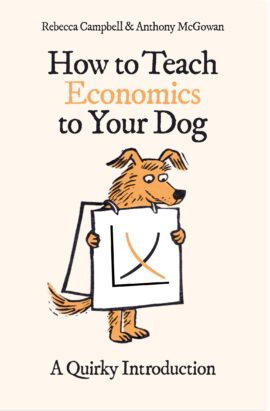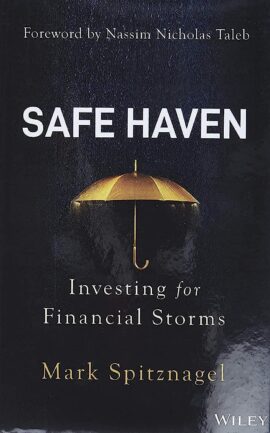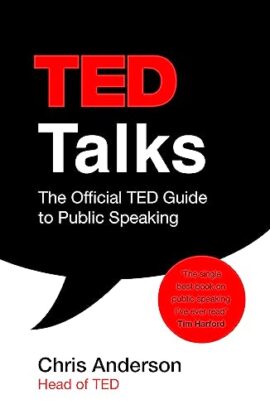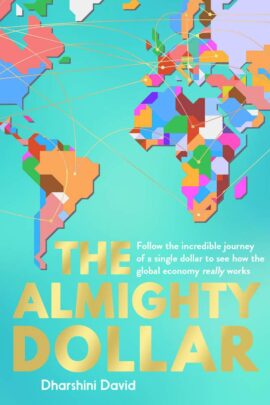«Masters of Mankind: Essays and Lectures, 1969-2013» a été ajouté à votre panier. Voir le panier
The World for Sale: Money, Power and the Traders Who Barter the Earths Resources
2.500,00 د.ج
The World for Sale Money Power and the Traders Who Barter the Earth’s Resources
6
Items sold in last 3 days
Félicitation ! vous bénéficiez d'une livraison gratuite !
0
People watching this product now!
Estimated delivery dates: septembre 24, 2025 – octobre 1, 2025
Catégorie : Business
Description
The World for Sale Money Power and the Traders Who Barter the Earth’s Resources
Informations complémentaires
| Editeur |
|---|
Produits similaires
Good Economics for Hard Times: Better Answers to Our Biggest Problems
2.530,00 د.ج
FROM THE WINNERS OF THE 2019 NOBEL PRIZE IN ECONOMICS'Wonderfully refreshing . . . A must read' Thomas PikettyIn this revolutionary book, prize-winning economists Abhijit V. Banerjee and Esther Duflo show how economics, when done right, can help us solve the thorniest social and political problems of our day. From immigration to inequality, slowing growth to accelerating climate change, we have the resources to address the challenges we face but we are so often blinded by ideology.Original, provocative and urgent, Good Economics for Hard Times offers the new thinking that we need. It builds on cutting-edge research in economics - and years of exploring the most effective solutions to alleviate extreme poverty - to make a persuasive case for an intelligent interventionism and a society built on compassion and respect. A much-needed antidote to polarized discourse, this book shines a light to help us appreciate and understand our precariously balanced world.
Money in One Lesson
2.530,00 د.ج
Superb' - Tim Harford, author of How to Make the World Add UpMoney is essential to the economy and how we live our lives, yet is inherently worthless. We can use it to build a home or send us to space, and it can lead to the rise and fall of empires. Few innovations have had such a huge impact on the development of humanity, but money is a shared fiction: a story we believe in so long as others act as if it is true.Money is rarely out of the headlines – from the invention of cryptocurrencies to the problem of high inflation, extraordinary interventions by central banks and the power the West has over the worldwide banking system. In Money in One Lesson, Gavin Jackson answers the most important questions on what money is and how it shapes our world, drawing on vivid examples from throughout history to demystify and show how societies and its citizens, both past and present, are always entwined with matters of money.‘A highly illuminating, well-researched and beautifully written book on one of humanity’s most important innovations’ – Martin Wolf, chief economics commentator, Financial Times
23 Things They Don’t Tell You about Capitalism
2.530,00 د.ج
Ha-Joon Chang's 23 Things They Don't Tell You About Capitalism turns received economic wisdom on its head to show you how the world really works.In this revelatory book, Ha-Joon Chang destroys the biggest myths of our times and shows us an alternative view of the world, including:There's no such thing as a 'free' marketGlobalization isn't making the world richerWe don't live in a digital world - the washing machine has changed lives more than the internetPoor countries are more entrepreneurial than rich onesHigher paid managers don't produce better resultsWe don't have to accept things as they are any longer. Ha-Joon Chang is here to show us there's a better way.'Lively, accessible and provocative ... read this book'Sunday Times'A witty and timely debunking of some of the biggest myths surrounding the global economy'Observer'The new kid on the economics block ... Chang's iconoclastic attitude has won him fans'Independent on Sunday'Lucid ... audacious ... increasingly influential ... will provoke physical symptoms of revulsion if you are in any way involved in high finance'Guardian'Important ... persuasive ... an engaging case for a more caring era of globalization'Financial Times'A must-read ... incisive and entertaining'New Statesman Books of the YearHa-Joon Chang is a Reader in the Political Economy of Development at the University of Cambridge. He is author of Kicking Away the Ladder: Development Strategy in Historical Perspective, which won the 2003 Gunnar Myrdal Prize, and Bad Samaritans: Rich Nations, Poor Policies and the Threat to the Developing World. Since the beginning of the 2008 economic crisis, he has been a regular contributor to the Guardian, and a vocal critic of the failures of our economic system.
How to Teach Economics to Your Dog: A Quirky Introduction
2.300,00 د.ج
A fun take on some of the biggest questions in economics, made accessible for non-experts (and dogs)Monty is a dog, not a financial genius, but economics still shapes his everyday life.Over the course of seventeen walks, Dr Rebecca Campbell chews over economic concepts and investigates how they apply to our lives – people and mutts alike. There are no graphs, no charts (Monty can’t read them) and definitely no calculus!How to Teach Economics to Your Dog tackles the knotty question of what economics actually is. Is it a mathematical science like physics? Or a moral and philosophical investigation of how societies should manage scarce resources?Along the way we meet some of the great thinkers from Adam Smith to Thomas Piketty, and ponder questions such as: What on earth does quantitative easing mean? And why are some countries so much richer than others?
Safe Haven: Investing for Financial Storms
4.140,00 د.ج
What is a safe haven?What role should they play in an investment portfolio? Do we use them only to seek shelter until the passing of financial storms? Or are they something more? Contrary to everything we know from modern financial theory, can higher returns actually come as a result of lowering risk? In Safe Haven, hedge fund manager Mark Spitznagel―one of the top practitioners of safe haven investing and portfolio risk mitigation in the world―answers these questions and more. Investors who heed the message in this book will never look at risk mitigation the same way again.
Safe Haven: Investing for Financial Storms
5.520,00 د.ج
What is a safe haven?What role should they play in an investment portfolio? Do we use them only to seek shelter until the passing of financial storms? Or are they something more? Contrary to everything we know from modern financial theory, can higher returns actually come as a result of lowering risk? In Safe Haven, hedge fund manager Mark Spitznagel—one of the top practitioners of safe haven investing and portfolio risk mitigation in the world—answers these questions and more. Investors who heed the message in this book will never look at risk mitigation the same way again.
TED Talks
2.530,00 د.ج
In Ted Talks Chris Anderson, head of TED, reveals the inside secrets of how to give a first-class presentation. Where books like Talk Like TED and TED Talks Storytelling whetted the appetite, here is the official TED guide to public speaking from the man who put TED talks on the world's stage. 'Nobody in the world better understands the art and science of public speaking than Chris Anderson. He is absolutely the best person to have written this book' Elizabeth Gilbert.Anderson shares his five key techniques to presentation success: Connection, Narration, Explanation, Persuasion and Revelation (plus the three to avoid). He also answers the most frequently asked questions about giving a talk, from 'What should I wear?' to 'How do I handle my nerves?'.Ted Talks is also full of presentation tips from such TED notable speakers as Sir Ken Robinson, Bill Gates, Mary Roach, Amy Cuddy, Elizabeth Gilbert, Dan Gilbert, Amanda Palmer, Matt Ridley and many more. This is a lively, fun read with great practical application from the man who knows what goes into a truly memorable speech. In Ted Talks Anderson pulls back the TED curtain for anyone who wants to learn how to prepare an exceptional presentation.
The Almighty Dollar: Follow the Incredible Journey of Single Dollar to See How the Global Economy Really Works
2.530,00 د.ج
Have you ever wondered why we can afford to buy far more clothes than our grandparents ever could ... but may be less likely to own a home in which to keep them all? Why your petrol bill can double in a matter of months, but it never falls as fast? Behind all of this lies economics. It's not always easy to grasp the complex forces that are shaping our lives. But by following a dollar on its journey around the globe, we can start to piece it all together. The dollar is the lifeblood of globalisation. Greenbacks, singles, bucks or dead presidents: call them what you will, they are keeping the global economy going. Half of the notes in circulation are actually outside of the USA - and many of the world's dollars are owned by China. But what is really happening as our cash moves around the world every day, and how does it affect our lives? By following $1 from a shopping trip in suburban Texas, via China's central bank, Nigerian railroads, the oilfields of Iraq and beyond, The Almighty Dollar reveals the economic truths behind what we see on the news every day. Why is China the world's biggest manufacturer - and the USA its biggest customer? Is free trade really a good thing? Why would a nation build a bridge on the other side of the planet? In this illuminating read, economist Dharshini David lays bare these complex relationships to get to the heart of how our new globalised world works, showing who really holds the power, and what that means for us all.
